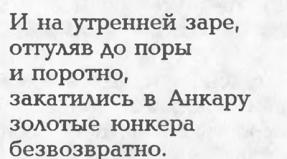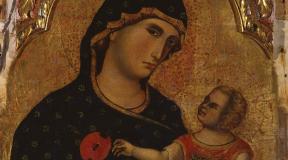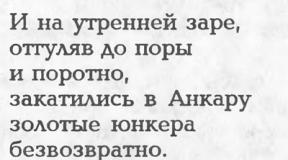Regulations on missionary and catechetical courses of the Moscow diocese. Diocesan missionary courses: Lecture on missionary work by Protodeacon A. Kuraev After breakfast – theosis of the cosmos
1. GENERAL PROVISIONS
1.1. Missionary and catechetical courses of the Moscow Diocese (hereinafter referred to as courses), operating on the basis of these Regulations, are a structural division of the Moscow Diocese of the Russian Orthodox Church and operate on the basis of the Kolomna Orthodox Theological Seminary.
1.2. The objectives of the courses include training, retraining and advanced training of missionary catechists, teachers of parochial schools, social and youth workers for parishes and monasteries of the Moscow diocese.
1.3. In their activities, the courses are guided by the internal regulations of the Russian Orthodox Church, the charter of the Moscow Diocese of the Russian Orthodox Church, current legislation, other state regulations, as well as these Regulations.
1.4. The courses are not a legal entity and do not conduct any business activities.
1.5. Material support for the courses is carried out at the expense of the Kolomna Orthodox Theological Seminary, parishes and monasteries of the Moscow Diocese according to the annual budget approved by the Administrator of the Moscow Diocese on the proposal of the rector of the Kolomna Orthodox Theological Seminary.
2. COURSE GUIDE
2.1. The activities of the courses are carried out under the general supervision of the rector of the Kolomna Orthodox Theological Seminary.
2.2. The current work of the courses is led by the Chairman of the missionary and catechetical courses of the Moscow Diocese (hereinafter referred to as the Chairman of the Courses), who is appointed by order of the Administrator of the Moscow Diocese.
2.3. The assistant to the course chairman is the secretary of the missionary and catechetical courses of the Moscow diocese (hereinafter referred to as the course secretary), who is appointed by order of the rector of the Kolomna Orthodox Theological Seminary on the proposal of the course chairman.
2.4. The educational council of courses decides on issues of their educational activities. The course council meets at least once every six months.
2.5. Course teaching advice:
- determines the order of operation of courses;
- develops and approves training programs and plans;
- determines the procedure for admission, graduation, transfer to the next course and expulsion of students;
2.6. Decisions of the educational council of courses come into force after their approval by the Administrator of the Moscow Diocese.
2.7. The course council includes:
- Rector of the Kolomna Orthodox Theological Seminary - Chairman of the Educational Council;
- Chairman of the missionary and catechetical courses of the Moscow diocese - deputy chairman of the educational council;
- Chairman of the Missionary Department of the Moscow Diocese;
- Chairman of the Department of Religious Education and Catechesis of the Moscow Diocese;
- Chairman of the Department for Charity and Social Service of the Moscow Diocese;
- Chairman of the Department for Youth Affairs of the Moscow Diocese;
- Secretary of missionary and catechetical courses of the Moscow diocese - secretary of the educational council;
3. ADMISSION, GRADUATION AND WITHDRAWAL FROM COURSES
3.1. The courses are accepted for clergy and laity of the Moscow diocese who have completed secondary education and intend to further serve as missionary catechists, Sunday school teachers, social workers, and youth workers.
3.2. To enroll in the courses, the candidate submits a petition, autobiography and a written recommendation from the rector of the monastery or parish, certified by the dean of the church district;
3.3. Admission to the courses is carried out by order of the rector of the Kolomna Orthodox Theological Seminary based on the decision of the educational council of the courses.
3.4. Course participants may be expelled before graduation for the following reasons:
- a substantiated written request from the priest who recommended admission;
- behavior that does not correspond to the standards of Christian life;
- academic failure;
- passive attitude towards learning.
3.5. The decision to expel can be made by the rector of the Kolomna Orthodox Theological Seminary or the educational council.
4. ORGANIZATION OF THE EDUCATIONAL PROCESS
4.1. The courses implement a program of special professional religious education.
4.2. The educational process at the Courses is carried out on the basis of curricula and plans developed by the Educational Council of the Courses.
4.3. The educational process on the Courses is carried out through part-time and part-time training, which involves giving orientation lectures, home-based self-study according to the programs, intermediate and final certifications.
4.4. Graduates of the courses who have passed the final certification are issued a certificate of completion of the courses, which gives them the opportunity to occupy parish positions according to the specification.
Mar 03
Diocesan missionary courses have begun in Moscow. The organizers of the courses are the Missionary Commission of the Diocesan Council of Moscow with the support of the Orthodox St. Tikhon's Humanitarian University and the Cyril and Methodius Mission Foundation.
The first lesson of the course opened with a lecture by the famous Orthodox missionary, Protodeacon Andrei Kuraev. His speech, naturally, was devoted to the problems of mission and became a kind of reminder for novice missionaries. We offer readers a summary of the lecture by Fr. Andrey Kuraev.
Orthodox youth or intelligence officer
There are two main options for a missionary to behave in a new audience. The first path is the path of Senkevich, the host of the Around the World program: so I come and stupidly talk about what interests me. Did you want to go to Turkey? Fuck you, today I’m telling you about Tibet. I have Lent on my calendar, and I will talk about it today. Here, of course, you need to speak in a way that is interesting to your audience. This means you must at least imitate the thought process.
Indeed, there are many people who have never been to Tibet and do not intend to go there; they listen with interest to what peculiarities of clothing Tibetan monks wear, what they do in the evenings, and so on. In the same way - within the framework of some Orthodox exoticism, let's talk about those Orthodox Christians who are still found in our jungle.
The second way is to move to a “foreign” thematic field - a field that is more interesting for non-church people. When I talk to teenagers about Harry Potter or The Matrix, my goal is to let them know that wearing my glasses is fun. Their favorite things may be unusual when seen through my eyes. My Christian view is not a limitation of my horizons, but, on the contrary, an expansion. I'm trying to show that this film, this book, this plot is much more interesting than it seemed at first.
The error of total apology
In church reflection, in church theology, it is long overdue to reconsider what in Orthodoxy one must die for, and what is not worth sneezing for. Orthodoxy has everything - great truths, spiritual evangelical dogmas, and there is something completely folklore, but that is what we are being kicked for most now. So, there is no need to strive to justify everything that happened in church life.
The tradition of Orthodoxy in our country was torn apart. We now treat Orthodox Russia the same way that modern rebellious Greece treats Alexander the Great. It seems that the geography is the same, there is some genetic and phonetic relationship, but the culture, of course, is different.

Spengler proposed the concept of pseudomorphosis - when old rocks are washed out in the layers of the earth, a void is formed, and fresh magma is infused there, where the new rock takes the form of the old one. This also applies to Russian Old Believers - they only thought that they were preserving antiquity, but their pathos was completely special. The same thing is happening to us today. The threads of many traditions were mercilessly cut off. And this gives us a certain freedom - we can decide which threads are worth pulling into the 21st century, and which ones are worth parting with.
The most important question in church life is: “What have we learned during the most terrible century in the history of the Church? Why, Lord, did You punish us like this? Will it not happen that, by reviving the way of life of the 18th and 19th centuries, we will also revive the revolutionary situation? What have you delivered us from? What ailments did we have that required us to be treated with a hot iron? What is worth reviving and what is not? Is it worth bringing Domostroy into the 21st century?” It is the missionary who has to answer for all this.

About national diseases
Our national disease is the heresy of utopianism. The symptom is an ideological attitude: “I know how to do it!” They say, let us in, and in 48 hours we will make everyone happy, because we know which book to live by! The first attack was Avvakum’s circle of piety with the book Typikon, which led to a schism and Peter’s rebellion against all this piety. The next attempt is Pyotr Alekseevich and the Dutch-German charters. Then the Bolsheviks and Marx. Then - 500 days or, there, 100 days with books by Western economists. And now we already have allergies - we are afraid of people with glowing eyes. As A. Galich wonderfully wrote:
Don't be afraid of prison, don't be afraid of scrip,
Do not be afraid of pestilence and famine,
And the only thing you should be afraid of is
Who will say: “I know how to do it!”
And, crumbling into a petty demon,
And swearing love to you all,
He will walk the earth with iron
And drown her in blood.
And he will lie such lies,
And such a story will weave,
That more than once that story in the barracks
You will remember in a bitter hour.
Therefore, one of the most dangerous positions of a missionary is the position of a loud-mouthed leader. And one of the antidotes to such intonation is clear permission for oneself not to engage in total apology.

Don't pretend that everything is fine
The great mistake of missionaries is to pretend that people know nothing about the shadow sides of church life. Sometimes it seems to me that it was easier to be missionaries of the first centuries, missionaries to the pagans, because in the eyes of unbelievers, the apostle’s word about the Church and the Church itself were identical. You, your personality, your eyes, your words are one and the same. If this was a real apostle and preacher, then this identity worked magnificently. And today our centuries-old history not only helps, but also does a fair amount of harm. Thus, in the Far East, the main enemies of the mission were not pagan shamans, but Russian merchants and officials who did not deal with people according to the commandments.
Even today, people see with their own eyes some inappropriate situations in church life. And you, as missionaries, have been left with those ulcers and problems that have never been fully resolved in church life, in church thought: church and power, church and wealth, church and state.
What school are you in?
Among those things that happened in the history of the Church and which should not be approved are all kinds of inquisitorial attempts and punitive theology. There are whole lists of quotes from the Holy Fathers on the Internet about the spiritual benefits of burning heretics, starting with the words of my beloved John Chrysostom. Yes, the Fathers have such quotes. But I specially collected other quotes from the Holy Fathers, and from the same Chrysostom - completely opposite.
This is the very case of a gap - the world of Orthodoxy is diverse. You can enroll in a school of theology of love, or you can enroll in a school of theology of hate. It’s up to you which thread you continue.
Problems of taste
Another problem of missionary service is the problem of taste: inappropriate drawing of the line between the irrational and the rational. There are beautiful words of John of Damascus: “Not everything in God is knowable, but not everything is unknowable; not everything that is knowable is expressible, but not everything that is unknowable is inexpressible.” That is, there is something in God that I can know and express in my own words, there is something in the Divine life that I can know, but I don’t have enough words, and there is something that will forever remain hidden for the created mind. Sometimes we continue to rationalize when it’s time to stop, and sometimes it’s the other way around—we capitulate too early. The church is not a ghetto where people hide from headaches. The head will come in handy; it must be used for its intended purpose.

Scylla and Charybdis missionary
The eternal problem of the missionary is the problem of passage between Scylla and Charybdis. Scylla is a narcissistic self-identity, when I stand in the form of a living monument to my rank and my churchliness, when I come to people, but do nothing to get used to their situation. It’s one thing when a person who has experienced a lot speaks about pain and suffering, and when it’s a glamorous graduate of a theological academy.
The other extreme is Charybdis - to become part of the board. And there is no Typicon, no rule, no norm that would say how to avoid this and up to what point you can make concessions to your non-church interlocutor. A person who is too pliable will be sterile, will be a weather vane. Who is locked in the cocoon of his status will also be infertile.
Another mistake a missionary makes is making too many demands on his listeners. A teacher who is looking for ideal students will be left alone, just like a young man who is looking for an ideal wife. But the same applies to students and listeners. When and how, and how seriously you need to be angry with those idiots who don’t understand you and misinterpret everything, and don’t implement the precious advice that you’ve already given them - again there is no definite answer. How long must we endure this diversity of church life both within ourselves, and the diversity of our interlocutors and the victims of our pedagogical efforts?
After breakfast – theosis of space
A missionary must understand the limitations of his efforts and be able to set limited goals for himself. Unfortunately, there is an official textbook published in Belgorod, which contains stunning, very beautiful phrases: the task of the church mission is the theosis of the cosmos. Only I go a little crazy when I read such beautiful words. And I don’t understand what they’re talking about, and most importantly, what do I have to do with it? Now I will wake up, have breakfast and in five minutes I will begin to study the theosis of the cosmos.
It is important to understand that the words “Church” and “mission” are not synonymous. There is much in the Church that has nothing to do with mission. For example, liturgy. What is a meeting of the Synod? Missionary work or not? It is important to understand the boundaries of the mission. Mission ends where shepherding begins. The missionary’s task is to get people to ask questions of the Church. As soon as a person begins to question the Church, he becomes a member of the Church, a flock, and then working with him is the task of the pastor. Indicator of mission success: from “you” your interlocutor moves to “we”, from “your butts” to “why on earth does our Church support this Putin.” That’s it, you said “our” - this is a great victory for the missionary!
Accordingly, in order not to fall into delusion, not to deceive yourself and not to drown in big words, it is important to understand a certain understatement of the goals of missionary work. When I walk into some university classroom, or to high school students, or to soldiers, I understand that they look at me like Lenin looked at the world bourgeoisie - who are you? Today we need to get our attitude towards the Church out of the negative. Not expecting that I would walk in in a cloud of incense and everyone would immediately say “Hallelujah.” My number one task is to prove my right to be present in this non-church audience.
I have my own preparations for this and my own experience, but they are quite personal. But I’ll tell you one thing - this is the problem of the first phrase, the beginning of a conversation in a non-church audience. For example, I had the following case: the rector of Bryansk University introduced me to the audience: “Meet, this is Father Andrei - he is a doctor of the Russian Orthodox Church.” I say: “This is not true, I am not a doctor, I am her patient, and partly a victim.” A joke is good. And the second, no less good remedy is self-irony.
About missionary charm
One of the most serious mistakes that awaits you is narcissism as a missionary. When I was in seminary, I felt that after debates with unbelievers, irritation remained in me.
Then I realized what was going on: I was angry with my interlocutors, I was so convinced that I was right that it seemed to me that if you locked me and a person in the same room for three days, then on the third day he would crawl straight into the arms of the Father, the monastic he will ask for tonsure.
And then I realized that I don’t know God’s plan for man. Where did I get the idea that this person should come to God through me, why now? Or maybe not through me, not now, and not through books at all?
Therefore, in order to avoid this missionary charm, it is very important to clearly set goals for yourself and have criteria for missionary work. This is a serious problem in church life. It is believed that in Orthodoxy only one self-esteem is allowed - negative. And this is not true, this is some kind of stylization.
An integral part of the male constitution, I won’t say about women, is that a man should have some kind of professional self-satisfaction, a feeling of a well-made thing - where there is success, where there is no luck. The teacher can say: in 4A I succeeded in the lesson, but in 4B I failed this topic. And the children didn’t notice it, but I have a sense of self, because I’m a professional. During prayer, a monk can say: “Thank God, today I was able to pray at Vespers. For the first time in a year." So, we must distinguish between personal self-esteem and professional self-esteem. In a personal sense, I am a bad Christian, but in a professional sense, something is working out. When it comes to performing complex multi-stage work, there must be a positioning of what part of the work I am currently performing and whether I have achieved any success or not.
There are specific, intermediate, small goals - whether it was successful or not. The audience did not fall asleep - a huge success! They didn't run away - hallelujah! It’s a wonderful miracle - they had three questions at the end! The next success is if someone stayed and came up alone, someone came again, were there any questions later, and so on and so forth.
In fact, you can read most of what I said in my little book “My Mistakes” or in printed form in the book “Perestroika into the Church,” or in its reincarnation in the form of five volumes “Conversation with Your Own.”
Our task is not to attract, but to repel
Your first task is not to attract, but to push away as many people as possible from the Church. I am not kidding. To prevent people from being baptized for superstitious reasons, to make it difficult to enter the Church. For a person to insist. In classrooms, I usually say this: “Guys, if there are adults among you who have not been baptized, then you are late, because an adult can ask for baptism only in one case - if you feel sick of yourself and want to change your life, then yes. But it’s not like that – my friend said it, my grandmother commanded it.”

Missionary - who to be?
The missionary must be a schizophrenic himself - when you speak, you must hear yourself through the ears of the one to whom you are speaking. The missionary’s schizophrenia also lies in the fact that he must be able to maintain within himself the feeling of falling in love with Orthodoxy. Discover Orthodoxy for myself again and again and rejoice that the reality of Orthodoxy is deeper, more interesting and more beautiful than I can imagine. Learn to collect the little things in church life and enjoy them.

_______________________________________________________
HELP: ABOUT MISSIONARY COURSES
Listeners Diocesan missionary courses of the Missionary Commission under the Diocesan Council of Moscow were selected from more than a hundred applicants. The students were people - young and not so young - who had a theological education and intended to devote themselves to missionary work. It was important for the organizers of the courses that the students were interested in the classes, so from among those who came, precisely those people were selected who really want to engage in missionary work and develop educational activities at the parish level, and also have a sufficient amount of theological knowledge and experience of church life.


As noted in a comment to the portal “ Orthodoxy and peace» teacher of biblical studies, editor-in-chief of the portal www.predanie.ru, head teacher of courses, the main task of the courses is to form, equip and support teams for missionary and social service to youth to various target audiences:
“The most important thing is to overcome the disunity of those people who do something in parishes, in deaneries, at the Moscow level. We need people to see each other and learn to interact. One of our practical tasks is to teach people teamwork. The course program will include several blocks: the first is a meeting with famous missionaries who will share their work experience. A.L. will be here. Dvorkin, Archpriest Alexy Uminsky, Deacon Pavel Serzhantov. We plan that professional psychologists will also speak here, for example, the author of textbooks on general and social and developmental psychology L. Pershina, Father Georgy Kazantsev and some others.
There will be few lectures, they will take up one third of what we will give. Now it is no coincidence that we seat people in groups so that they can get to know each other and then work together. That is, the second block is practical skills: working in groups, communication skills with an audience, skills in organizing events. The very last block, conventionally called “to think”: how these skills should be combined in a parish, how to make missionary work not a one-time thing.
A whole team will work on the courses - on the one hand, those who have extensive practical experience, and on the other - with whom we have already worked: this is the acting. Chairman of the Missionary Commission of Moscow, Hieromonk Dimitry Pershin, deputy. Dean of the Missionary Faculty of PSTGU, Secretary of the Missionary Commission Artem Sharafutdinov, specialist in prison ministry, methodologist of the Missionary Faculty of PSTGU, curator of course practice Natalya Ponomareva, President of the Cyril and Methodius Mission Charitable Foundation Svetlana Rudneva and others.”
The idea of the courses appeared and was implemented thanks to the joint work of employees of advanced missionary sites: the Brotherhood of Orthodox Pathfinders camp, the All-Russian youth camp Feodorovsky Gorodok, the Orthodox shift of the Seliger youth camp. Much preparatory work was carried out within the framework of the youth movement “Mission Possible”. The courses will run until May 28 this year.
TEXT AND PHOTO by Anna Galperina.
Diocesan missionary courses in Moscow
About questionable methods at diocesan missionary courses in Moscow
On February 20, 2012, diocesan missionary courses began operating in Moscow, organized by the Missionary Commission of the Diocesan Council of Moscow with the support of the Orthodox St. Tikhon's Humanitarian University and the Cyril and Methodius Mission Foundation. With the blessing of my rector, Archpriest Sergius Kulikov, I took these courses.
At the beginning, they usually give a lecture, and then some strange action begins: course participants are divided into groups, seated in a circle, and given a sheet listing the positive and negative feelings of a person, and each, guided by this list, must tell everyone in detail what he feels at the moment. When this sheet reached me, I asked in bewilderment: “Excuse me, I came here to learn to be a missionary, but this expression of my positive or negative feelings, what has anything to do with the mission? In general, what is all this for? In response, Natalya Ponomareva, the course coordinator, explained: “Maybe you have some negative feelings, then we will help you deal with them,” to which I said that I have a confessor, before whom I open up to God, then Ms. Ponomareva asked the person sitting next to her to explain it to me again.
I was also struck by how Ms. Ponomareva said that if someone is angry, he needs to throw out somewhere the negativity that he has collected after anger, he needs to do something, just not leave this negativity in himself - that’s all this, to put it mildly, is very far from how the holy fathers taught about the passion of anger and the fight against it.
Next was a speech by the head teacher of the courses, Vladimir Strelov, who drew on the board the way to help a person enter the Church. In the first place he had: “Entertainment”, after which, after several stages, a person (according to him) needs to be gradually introduced to church life. One of the listeners stood up and recalled the first words of the Savior and John the Baptist: “Repent, for the Kingdom of Heaven is at hand,” that is, they began the call not with entertainment, but with repentance of sins, and we do not necessarily have to bring people to Church of people. In response, heated discussions began.
I was also surprised that Mr. Strehlov believes that “hesychasm is not the only way of growth in the Orthodox Church.” What is another, equally worthy alternative to spiritual growth? What could be higher than the contemplation of the uncreated light?
Then the topics were distributed into groups, I joined the group with the topic “Reading the Gospel at the Temple.” Everyone could express their thoughts. I reminded that, according to Canon 19 of the VI Ecumenical Council, one must understand Scripture no differently than how the Holy Fathers of the Church interpreted it, but somehow I was quickly stopped. Then another participant suggested that those parts of the Gospel where something is said “harshly” should be reinterpreted gently so as not to scare the person away. I told him that such a principle is alien to Orthodoxy, and suddenly our coordinator interrupted me with the words: “you are apparently a beginner and don’t know the rules, you can’t criticize anyone here.” At the end there was another “confession” - a story in front of everyone about my positive and negative feelings; some participants were unhappy with my statements. I just said that we must not depart from the Orthodox tradition, which has everything to engage in mission, and we must not replace it with surrogates.
The next time I came to these courses, I was asked to leave the premises.
Unfortunately, it is such a disappointment that the organizers of the courses decided to use such an important topic as training in the Orthodox mission as a means of self-expression, to impose on the Church their private opinions and innovative practices that are not directly related to the mission.
If they want to engage in psychological training, and if they have psychological education and work experience, then they can agree with some organization to be given time and place for regular meetings with people who have psychological problems, and they would advise them, maybe Perhaps this would be of benefit to someone, at least in this case the name would correspond to its content. But here people are invited on behalf of the Church to study the Orthodox mission, and instead they organize group psychological games.
It remains completely unclear to me who and when approved a similar methodology in the Russian Orthodox Church as the main and universally binding one, if this is what is taught in diocesan courses? Has it been tested in practice on a wide scale, and what independent experts have confirmed its effectiveness as a missionary technique? It seems that not only is there none of this, but, moreover, in these courses they are trying to teach those forms and methods that in the recent past have already caused a negative reaction from many Orthodox Christians and have become a cause of temptation in the church environment.
It seems to me that in general diocesan courses it is advisable to provide, first of all, information about patristic and traditionally Orthodox forms of mission, and controversial and not generally accepted by the church methods, as well as private opinions, should be presented and discussed at specialized seminars or conferences of experienced missionaries. Something controversial and new can be discussed and proposed when what is already known and traditional has been well studied and tested. However, one gets the impression that traditional patristic methods and principles of mission are not known and not tested in practice not only by course participants (which is natural), but also by curators.
I believe that when people who come to learn about the basics of the Orthodox mission are offered instead psychological training and subjective opinions, there is a great danger that such training will not only be useless, but may even cause harm.
Read also...
- Step-by-step instructions for opening a certificate of incapacity for work - how to take sick leave correctly?
- Anton Shoki about life after the project: “I found a job in a hotel
- Biography of Nadezhda Sokolovskaya from House 2
- Why do babies in medieval paintings look like terrible men and how they became beautiful during the Renaissance Things sticking out of their butts



















